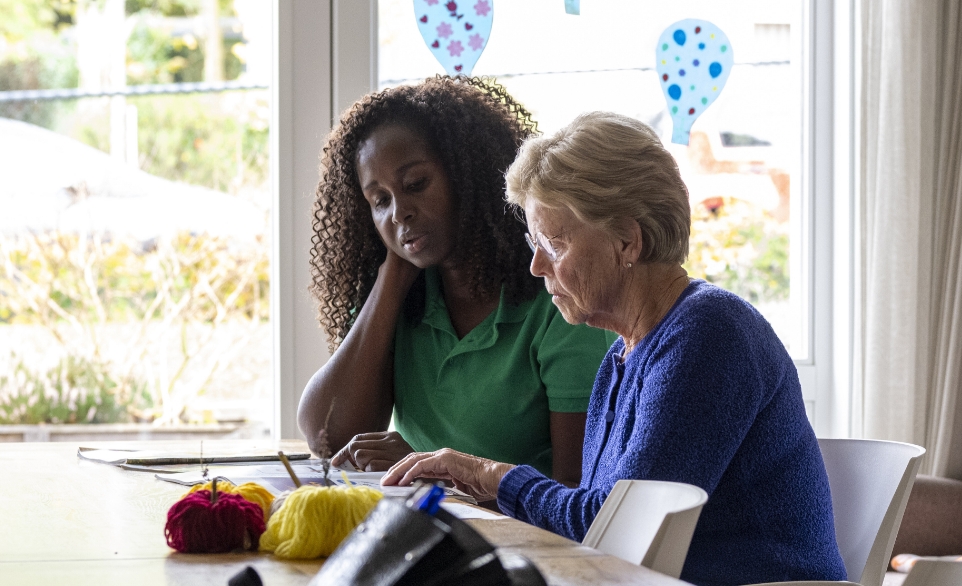
In social care, the greatest insights often come not from textbooks or training manuals—but from the everyday experiences of those delivering care. Every conversation, crisis, inspection, and breakthrough is a chance to learn. And when we choose to share these frontline lessons with each other, we don’t just improve one service—we strengthen the sector as a whole.
This is the spirit behind United in Care—a belief that we rise faster when we rise together.
- Catch more real-world insight in our United in Care playlist on @bigsistercare YouTube
- Follow@bigsisterhomecare for daily wisdom and real stories from providers like you.
What “Frontline Lessons” Really Mean
They’re not always big moments. Sometimes they’re:
- A staff rota mistake that taught you the importance of better communication
- A family complaint that revealed a training gap
- A last-minute audit scramble that helped you streamline documentation
- A brilliant new carer who reminded you why values matter more than experience
Every challenge is a teacher—if you’re willing to listen.
Top Lessons Care Leaders Are Sharing Right Now
-
“Digital systems can’t replace human connection—yet.”
Several providers told us that while digitising care notes or medication logs helps with compliance, it’s important to double down on communication so staff don’t lose the human side of care.
“We had fewer errors on paper, not because the system is worse, but because we spoke to each other more when it was physical.”
– Operations Manager, East Midlands
-
“You’re only as good as your induction.”
A care provider in Kent reported that 90% of their early staff exits came from carers who had less than 7 days of onboarding. They’ve now introduced a 15-day phased induction and staff retention has significantly improved.
Onboarding isn’t admin. It’s the beginning of loyalty.
-
“Mental health check-ins are essential, not optional.”
Burnout is real. Providers that introduced monthly wellbeing one-to-ones have noticed better morale and fewer last-minute absences.
Even a 10-minute “How are you?” check-in can shift someone’s entire week.
-
“We need to prep for spot checks like they’re tomorrow.”
One service shared how they built a “mock inspection” culture—every week, a random file or care plan is audited by a team leader. This has reduced panic before CQC visits and improved everyday documentation standards.
-
“Your biggest strength is often the thing you think is ‘normal.’”
One provider told us they didn’t think their local community café sessions were special—until a commissioner highlighted them in a bid debrief as key social value evidence.
What you do naturally might be your biggest selling point. Don’t overlook it.
Why Sharing These Lessons Matters
The care sector is often fast-paced, high-pressure, and lonely at the top. Sharing frontline lessons does three things:
- Normalises challenges — You’re not failing; you’re learning.
- Speeds up improvement — You don’t need to reinvent every wheel.
- Builds trust and solidarity — We’re in this together, not against each other.
Want to Start Sharing Your Lessons? Try This:
Create a “Lesson of the Month” board in your office
Let any staff member write up a quick win or mistake and what they learned.
Join the Big Sister community
We spotlight real stories from providers and staff in our newsletters and blogs. Sharing your experience could help someone else—and raise your visibility.
Start a buddy system
Pair with a provider in a nearby area. Have monthly “real talk” calls where you exchange one thing that went wrong and what you learned.
Join the Movement — United in Care
You don’t need to have everything figured out to share value. Some of the most powerful insights come from saying, “Here’s what we tried—and what we’d do differently.”
Let’s learn in public. Let’s build in community. Let’s grow with integrity.
- Want to share your own frontline lesson with us? Email: hello@bigsistercare.com
- Watch peer stories on our United in Care YouTube playlist
- Follow @bigsisterhomecare on Instagram for more tips, insights, and stories from the frontlines
- Download our brochure, or book a call
Final Words from Jill
“I’ve worked with hundreds of care leaders, and the ones who grow the fastest? They’re not the ones who never make mistakes—they’re the ones who turn every misstep into momentum. That’s what United in Care is all about.”
– Jill Hudson, Founder of Big Sister













